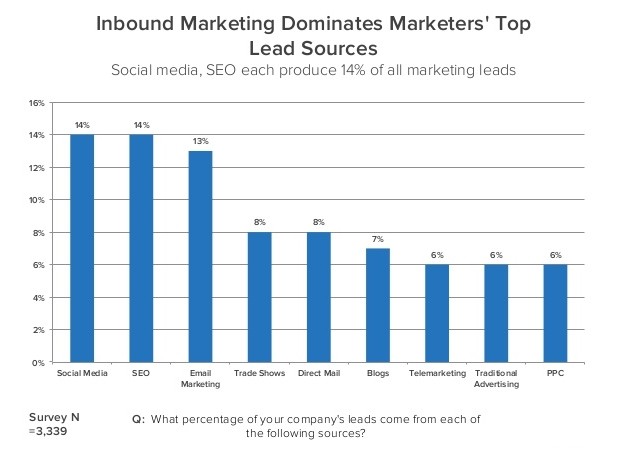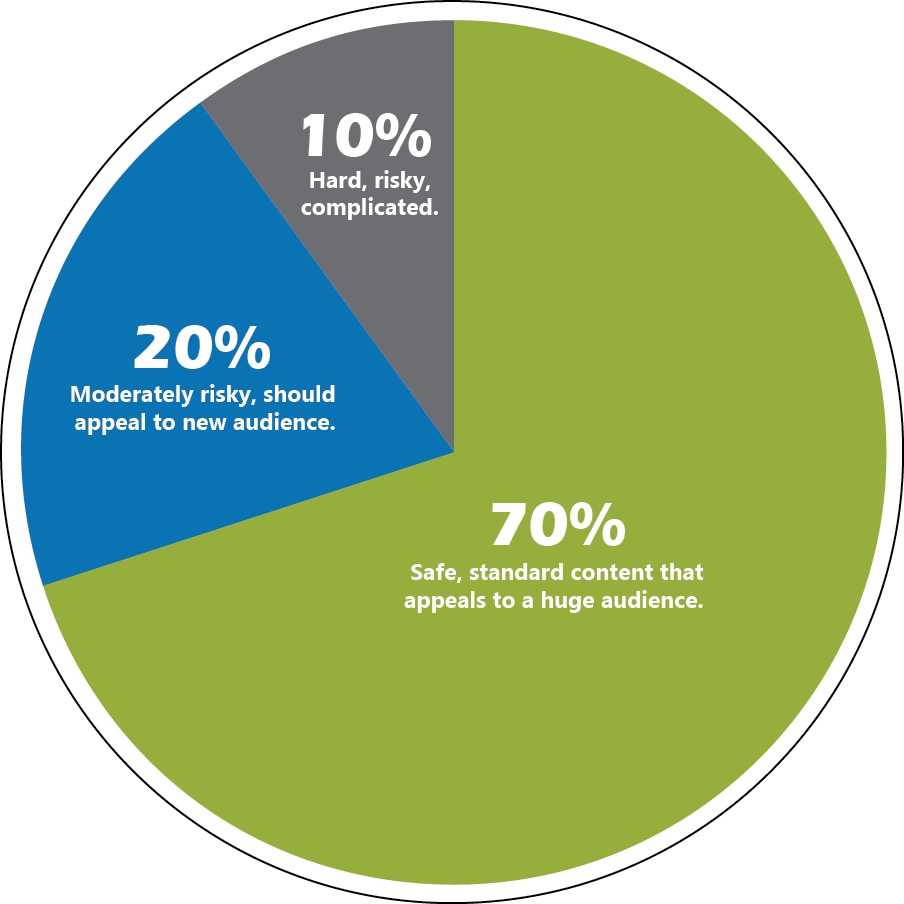Inbound marketing, and content marketing in particular, is increasingly becoming an enormous part of generating publicity for early-stage startups and developed businesses alike. Nearly 60% of all businesses practice inbound marketing, largely due to the high conversion rates associated with the production of great content and its ability to cut through a crowded internet.
The results that can be generated by an effective content team are becoming increasingly difficult for business owners to ignore, and many are interested in initiating their own content marketing efforts. Regardless of your company’s location on the growth curve, starting a content marketing team is a serious undertaking that requires assembling the right mix of ingredients. The first step lies in understanding why it truly takes a team to create powerful content.
Why Businesses Need A Content Team
If you take one thing away from this article, let it be this:
One person is not a team!
In a startup setting teams are necessarily small, for understandable reasons based on both budget and culture. Startups typically don’t have the financial backing to field huge teams, and staying small allows them to react quickly to changing circumstances while cutting down on the hidden costs of bureaucracy. The downside to this is that responsibilities like “content marketing” often get handed off to a single individual; or, even worse, are assigned to someone who already has many other things on their plate. Simply put, this is a huge mistake.
Content marketing is one of the most effective ways to drive people to your business in 2013. Business to business companies that blog generate 67% more leads per month than businesses that don’t. 61% of consumers say that they’re more likely to buy from companies that deliver custom content, while 78% of consumers think that companies that take the time to create content are more interested in developing personal relationships with their customers. There are hundreds of other statistics pointing to the same truth: content generates results, and great content has to be a big part of promoting your brand online. There are just too many networks, too many updates, and too many things of importance to expect a single individual to keep track of it all while executing high-quality content.
Inbound marketing is highly effective at generating leads!
A great content team is one of the most powerful assets a startup can command. Teams don’t appear overnight, and you have to start somewhere. An ideal place to begin your content team is by selecting an excellent content manager that can help lead the program, define the identity of your content, and potentially help select other members of the team.
Responsibilities Of A Content Manager
The content manager is perhaps the most important part of an effective content team. The role is wide-ranging, and includes broad managerial responsibility for the team in addition to specific tasks oriented around effective planning and execution of content strategies. The content manager will have a significant impact on the overall voice and direction of your content. Great content managers are effective multitaskers and excellent communicators who can command the respect of a team and keep their heads on straight when things get tough.
Audience Research
Effective content is content which is targeted directly at the needs of your brand’s unique audience, so understanding the demographics of your customers is an incredibly important first step towards building great content. As one of the first members of your content team, the content manager is responsible for conducting the initial audience research that will dictate your early content decisions. Gathering input from the article writers is also just as important, to understand their strength and weaknesses, and adjust accordingly.
Google and Facebook analytics are a good place to start, as they’ll give you some basic information on who’s interacting with your website and social media posts. Consider using a survey site like Qualaroo or Survey Monkey that will allow you to get information on what your customers are looking for directly from the source.
Developing A Persona
No one likes a soulless brand, and smart companies are learning to put an identifiable voice and face on their work. At Ebyline we’ve written on the importance of brand personification a number of times in the past, and how it builds the trust necessary to have an effective relationship with your customers. These days consumers have so many options that there’s no reason to interact with a brand that they don’t fully trust.
One of the most important tasks the content manager has is designing an effective voice for your brand’s content. One of the best ways to do this is by answering a series of questions like:
- Formal or informal?
- Straight-laced or funny?
- Research based or instinctual?
- Masculine or feminine?
- Deliberate or energetic?
The answers to these questions will be based both on the nature of the products and services that you offer and the demographics that make up your brand. Typically, brands that cater to a younger audience lean more towards the informal and funny, while those that have a more mature target market are more likely to be a bit straight-laced. It’s possible to mix and match styles based on circumstance, but having a core underlying philosophy will give you content a consistency that will be appreciated.
Creating An Editorial Calendar
In addition to all of their responsibilities around content creation, planning and managing the timeline of your content’s distribution will be one of the core ongoing responsibilities of the content manager. To succeed with this task, the content manager must:
- Understand the overall flow of work, and each individual team member’s work load at any given time.
- Manage the day-to-day tasks of each teach member.
- Create and execute an overall blueprint for content development on a weekly, monthly, and yearly basis.
The trick for the content manager is the same as for any management position, having enough oversight and understanding of each individual member’s tasks to keep the program on task without getting to the point of micromanagement. It’s important to maintain respect for the ability of each individual member to execute, while still understanding that sometimes gentle guidance is necessary.
Planning Dynamic Content
Not all content is created equal. While most of your content will eventually fall into a regular rhythm, it’s important to push the envelope with some number of pieces and work to create really dynamic content. We’ve discussed the 70-20-10 approach to content development on Ebyline in the past, and these dynamic and innovative pieces of content are the ones that fall into the 10% range.
The 10% is where the innovation is
Creative content of this variety pushes the brand forward, and often leads to breakthroughs which can have real impact. A major responsibility for the content manager will be directly overseeing these major content projects, and designing and planning new dynamic content that will continue to advance your brand’s identity. If the content manager is becoming buried in regular, ho-hum work it’s important to delegate some responsibility so they can maintain involvement in your most important content pieces.
Working With Writers
Whether you hire writers in-house or choose to work with high-quality freelancers, the content manager will regularly interact with writers and written forms of content. Working with written content requires a somewhat different skill set than planning out an editorial calendar or managing individual team members. In order to properly evaluate the quality of the work and maintain an overall high standard of execution, it’s important that the content manager possess strong writing skills and the ability to edit effectively when needed.
Ensuring Quality
Overall, it is the content manager’s responsibility to ensure a consistent level of quality across the various content programs. It’s easy to become overwhelmed at a startup, there are so many things to do and so little time to do them all. Over time, it’s only natural for certain programs to atrophy slightly as the little things start to fall through the cracks and inefficient patterns of work emerge. Perhaps the most important job of the content manager is to fight this trend and ensure that your content remains of consistently high quality.
Managing, motivating, and maintaining the high level of production of any group of individuals is a difficult task, and the content manager is the hub that keeps the wheel spinning. When starting up a content team, identifying and hiring a skilled content manager is a critical step towards success. Remember, great content is one of the most effective ways to increase brand awareness and motivate customer action, so a great content manager is a vital member of your team!









